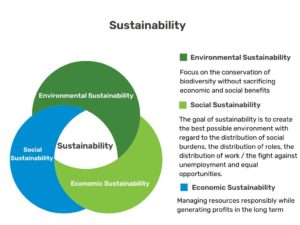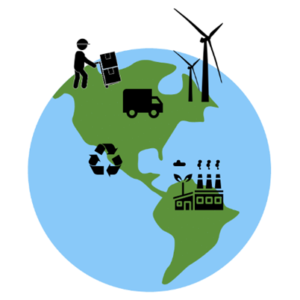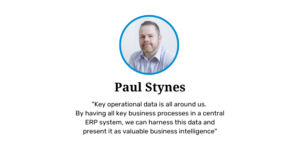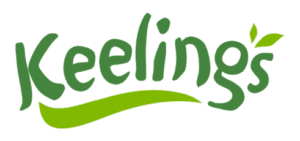We usually associate the term sustainability with measures taken to preserve biodiversity, protect natural habitats and the climate. But sustainability goes much deeper: it means striking a balance between economic growth, environmental protection and social well-being while meeting the needs of current generations without compromising the needs of future generations.

Sustainability therefore sets many goals. A few of them are, for example, fighting poverty and hunger, protecting the land and sea by reducing plastic waste and, related to this, applying sustainable measures from the moment of production. About one third of all food produced worldwide is thrown away or wasted. Much of this is lost during the supply chain and with it, valuable resources such as water, energy, and farmland. To ensure the next goal of protecting the land and sea, it is crucial to combat the amount of plastic waste, both in landfills and in our forests or oceans. If nothing changes, there will be more plastic than fish in the oceans by 2050. To prevent this from happening, the fresh produce industry has already taken countermeasures, such as using reusable nets instead of knotted bags, natural trays when packing corn, or transporting with electric or hydrogen trucks to counteract CO2 emissions.

Achieving the goals of sustainability is not an easy task but all our responsibility. With a special focus on the fresh produce industry, Keelings Knowledge developed an ERP system that makes it possible to operate more sustainably and efficiently. Our extensive production module and efficient warehouse management ensures sustainable purchasing with less waste. In addition, it provides a record of all packaging materials and can include packaging tax as a component in the cost calculation module. Keeling’s Knowledge ERP software is based on a complete solution developed from the industry for the industry. Learn how we can help you achieve your goals.







